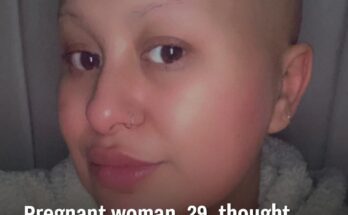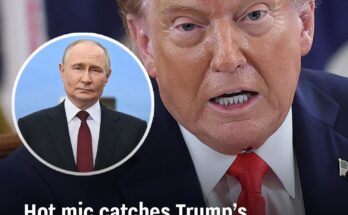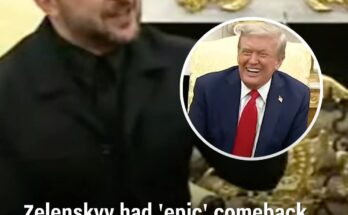On April 21, 2025, Pope Francis passed away at the age of 88, leaving the papal seat vacant. The Vatican conclave is now underway to elect the next leader of the Catholic Church. Two candidates have emerged as frontrunners—one of whom is known for his singing abilities, a trait that has earned both admiration and criticism.
The Voting Process
According to Vatican rules, a conclave to elect a new pope must begin at least fifteen days after the papacy becomes vacant. This waiting period ensures that all cardinal electors can arrive in Rome. If all are already present, the College of Cardinals may choose to begin earlier. A slight delay beyond the fifteen days is also permitted for serious reasons.
However, the conclave must start no later than twenty days after the vacancy begins. Once assembled, the cardinals cast secret ballots marked with the Latin phrase Eligo in Summum Pontificem (“I elect as Supreme Pontiff”), writing down the name of their chosen candidate.
Roles are assigned by lot: three scrutineers to count the votes, three infirmarii to assist unwell cardinals, and three revisers to confirm the tally. All non-electors are dismissed before the chapel is sealed.
Each cardinal elector casts their vote in order of precedence, swearing an oath that Christ is witness to the sincerity of their choice. Votes are collected in a chalice, and accommodations exist for those unable to vote in person. If the number of ballots does not match the number of electors, the vote is annulled and repeated.
Valid ballots are read aloud, tallied, pierced with a needle, and threaded together with string. To be elected pope, a candidate must receive a two-thirds majority—at least 89 of the 133 votes.
The cardinals vote up to four times daily. After each round, the ballots are burned in a cast-iron stove, with a second stove producing smoke signals from the Sistine Chapel: black for no result, white for a successful election.
If 21 ballots pass without a result, the process is narrowed to the two candidates who received the most votes. Even then, a two-thirds majority is still required, and the top candidates may not vote for themselves. Periods of reflection and prayer are introduced between voting rounds to encourage spiritual discernment.
Once elected, the new pope changes into white vestments in the so-called “Room of Tears” before being formally introduced to the world.
Leading Candidates
Pietro Parolin (Italy, 70)
Currently serving as the Vatican’s Secretary of State since 2013, Parolin is seen as a continuity candidate closely aligned with Pope Francis’s legacy. A seasoned diplomat, he has led key negotiations on behalf of the Holy See.
Supporters view him as a pragmatic realist committed to peace and international diplomacy. Critics, however, argue that his ideological alignment and focus on diplomacy may limit broader reforms.
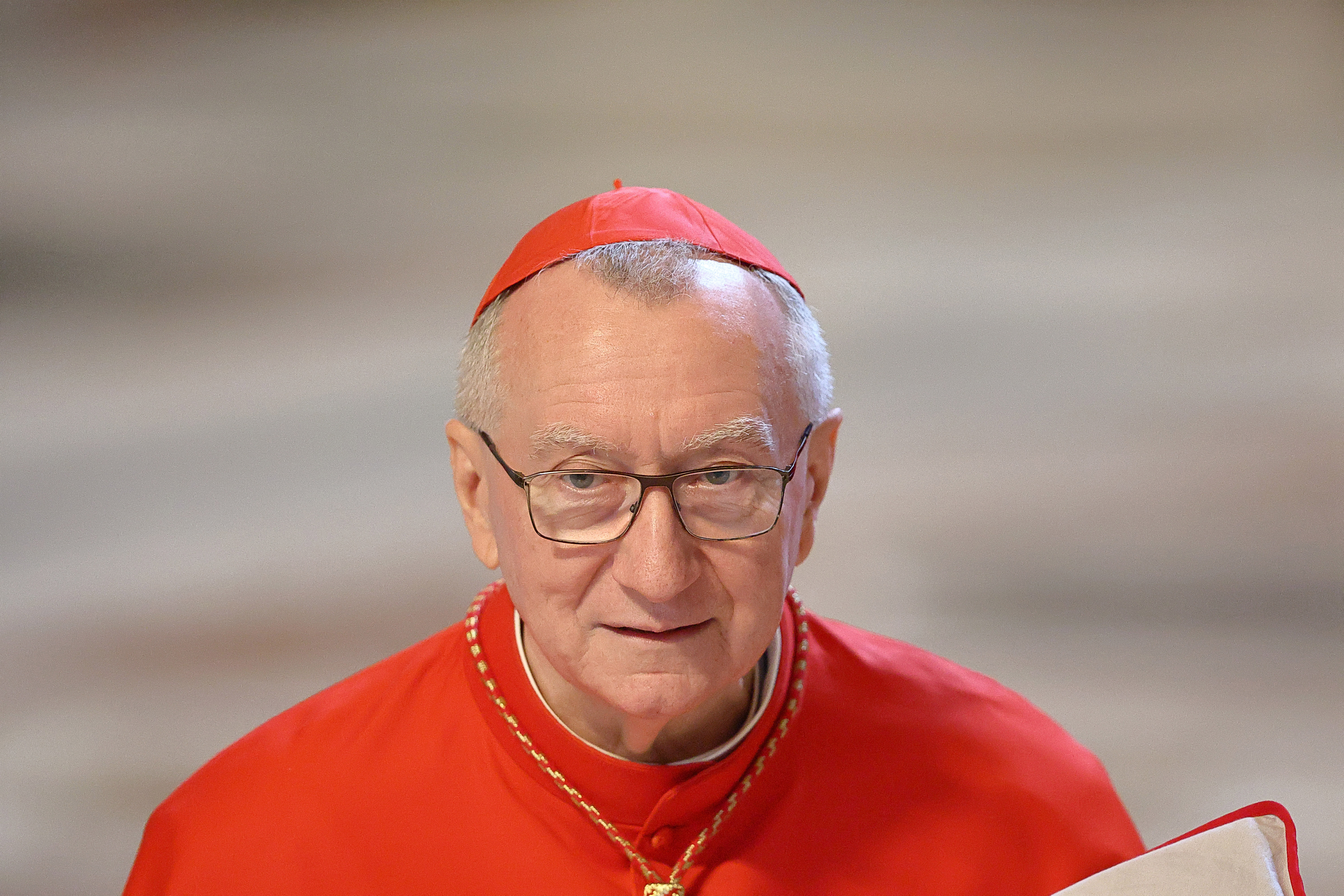
Cardinal Pietro Parolin during the Holy Mass for the election of the Roman Pontiff in St Peters Basilica on May 7, 2025 | Source: Getty Images
Luis Antonio Gokim Tagle (Philippines, 67)
Tagle would make history as the first Asian pope, fitting for a region with a rapidly growing Catholic population. Formerly Manila’s archbishop, he was once believed to be Francis’s favored successor due to his progressive views.
Though critical of the Church’s stance on homosexual and divorced couples, Tagle maintains opposition to abortion rights in his home country. His star has dimmed recently, with signs suggesting he may have fallen out of favor within the Vatican hierarchy.
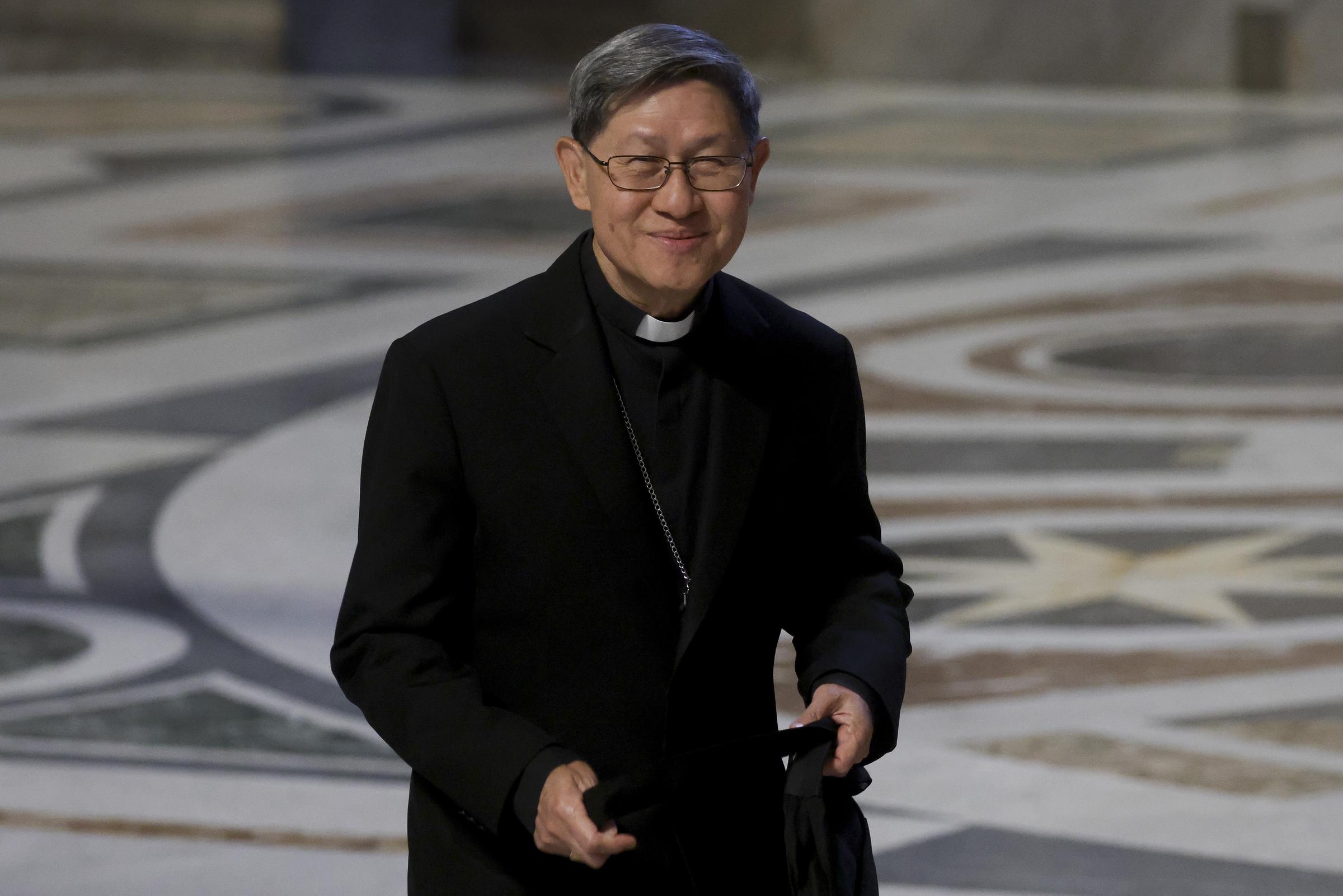
Cardinal and Archbishop of the Philippines Luis Antonio Gokim Tagle at St. Peter’s Basilica for the ninth Novendiale Mass on May 4, 2025, in Vatican City | Source: Getty Images
Peter Turkson (Ghana, 76)
Turkson, a veteran cardinal and advocate for social justice, could become the first Black pope in centuries. He is known for his vocal positions on climate change, poverty, and economic inequality.
While traditionally conservative on Church doctrines regarding marriage and priesthood, he has criticized the severity of anti-LGBTQ+ laws in Africa. He also remains outspoken against corruption and human rights abuses, showing a balance of tradition and reform.
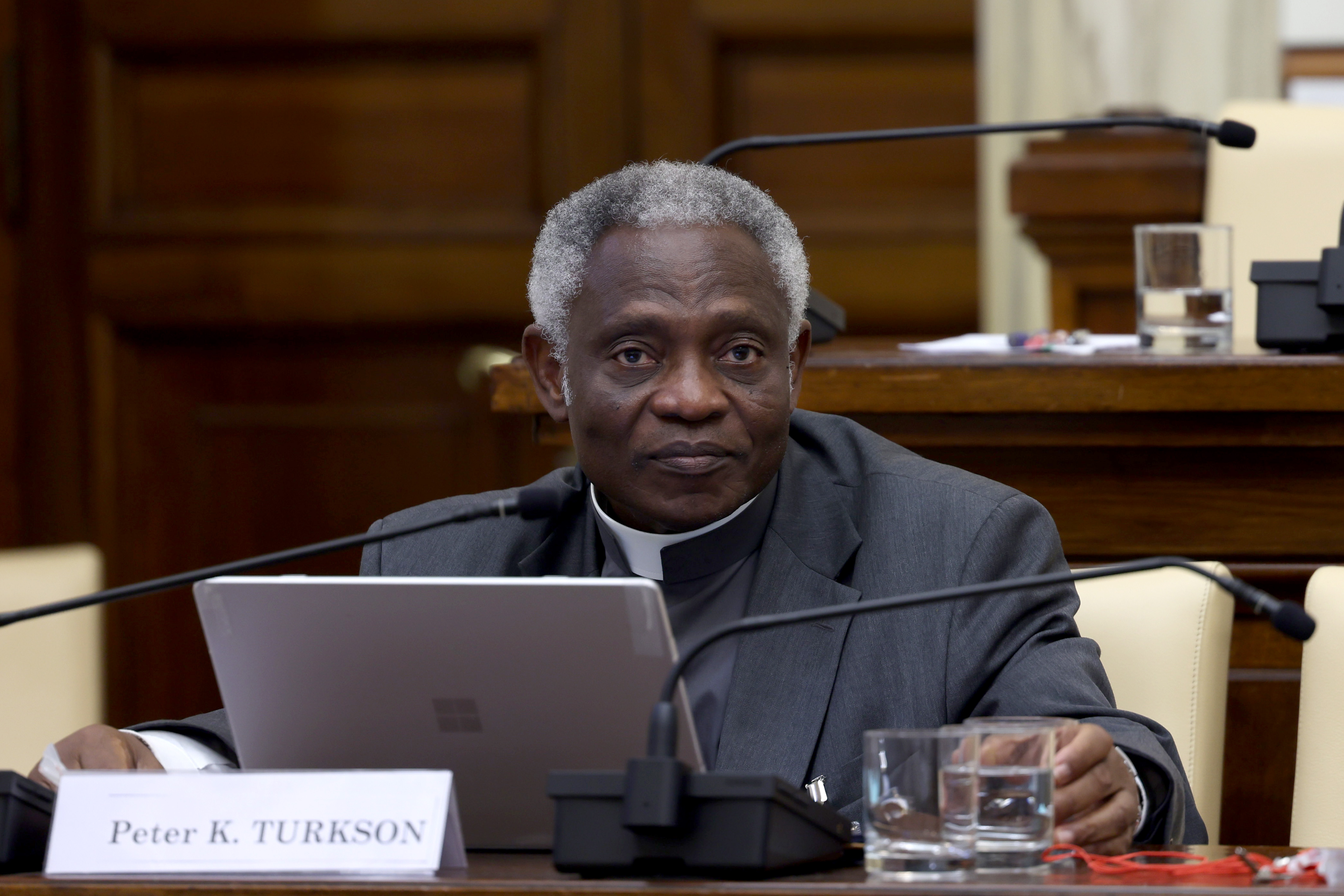
Cardinal Peter Turkson at “The Reconstructing the Future for People and Planet” conference in the Vatican Gardens on June 9, 2022, in Vatican City, Vatican | Source: Getty Images
Robert Francis Prevost (United States, 69)
Prevost, a moderate American cardinal, faces the usual skepticism reserved for US papal contenders due to geopolitical concerns. Nonetheless, his influence has grown following his 2023 elevation by Francis and his role in the Dicastery for Bishops.
He brings global Church experience, notably from missionary work in Peru, and holds respected leadership credentials from his time heading the Augustinian order. His profile marks him as a serious, albeit unconventional, candidate.
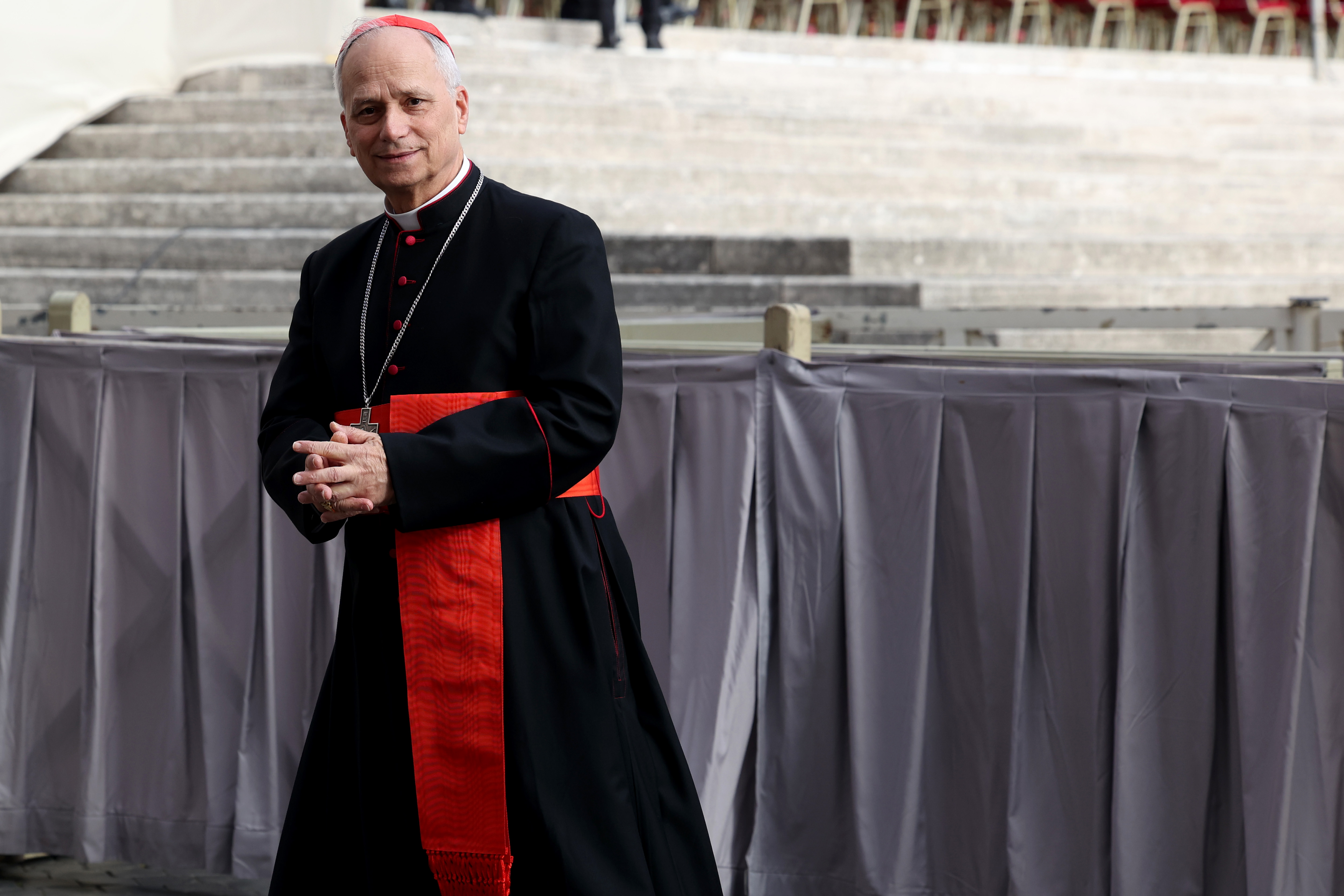
Cardinal Robert Francis Prevost at the funeral of Pope Francis in St. Peter’s Square on April 26, 2025, in Vatican City, Vatican | Source: Getty Images
Péter Erdő (Hungary, 72)
A stalwart conservative, Erdő stands in ideological contrast to Francis. He is seen as a potential pivot away from the progressive papacy. An intellectual and cultural figure, he garnered support from the late Cardinal George Pell, who admired his legalist stance.
In 2015, Erdő drew attention by indirectly aligning with Hungarian Prime Minister Viktor Orbán in rejecting Francis’s appeal to churches to shelter migrants, reinforcing his traditionalist credentials.
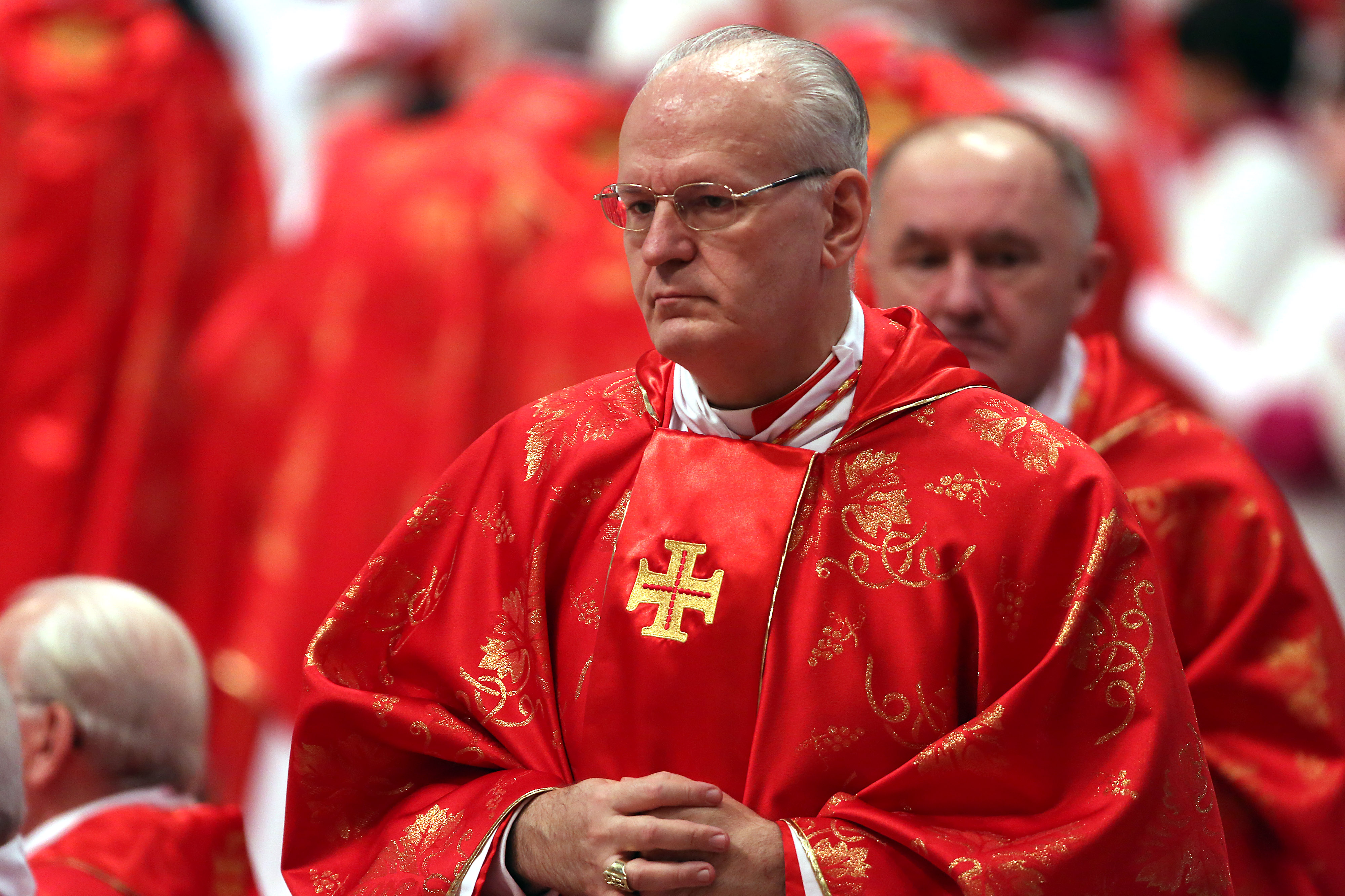
Ungarian Cardinal and Archbisop of Budapest Péter Erdő at the Pro Eligendo Romano Pontifice Mass on March 12, 2013, in Vatican City, Vatican | Source: Getty Images
Matteo Zuppi (Italy, 69)
Zuppi, a key figure on the Church’s progressive side, has been a vocal advocate for social justice and peace, echoing Francis’s priorities. Appointed a cardinal in 2019 and later a Vatican envoy to Ukraine, he played a diplomatic role in seeking peace during the war.
He met both Patriarch Kirill, the leader of the Russian Orthodox church, and Russian President Vladimir Putin’s ally, and Ukraine’s President Volodymyr Zelenskyy. Zuppi’s liberal approach to same-sex relationships and active humanitarian engagement positions him as a forward-looking candidate.
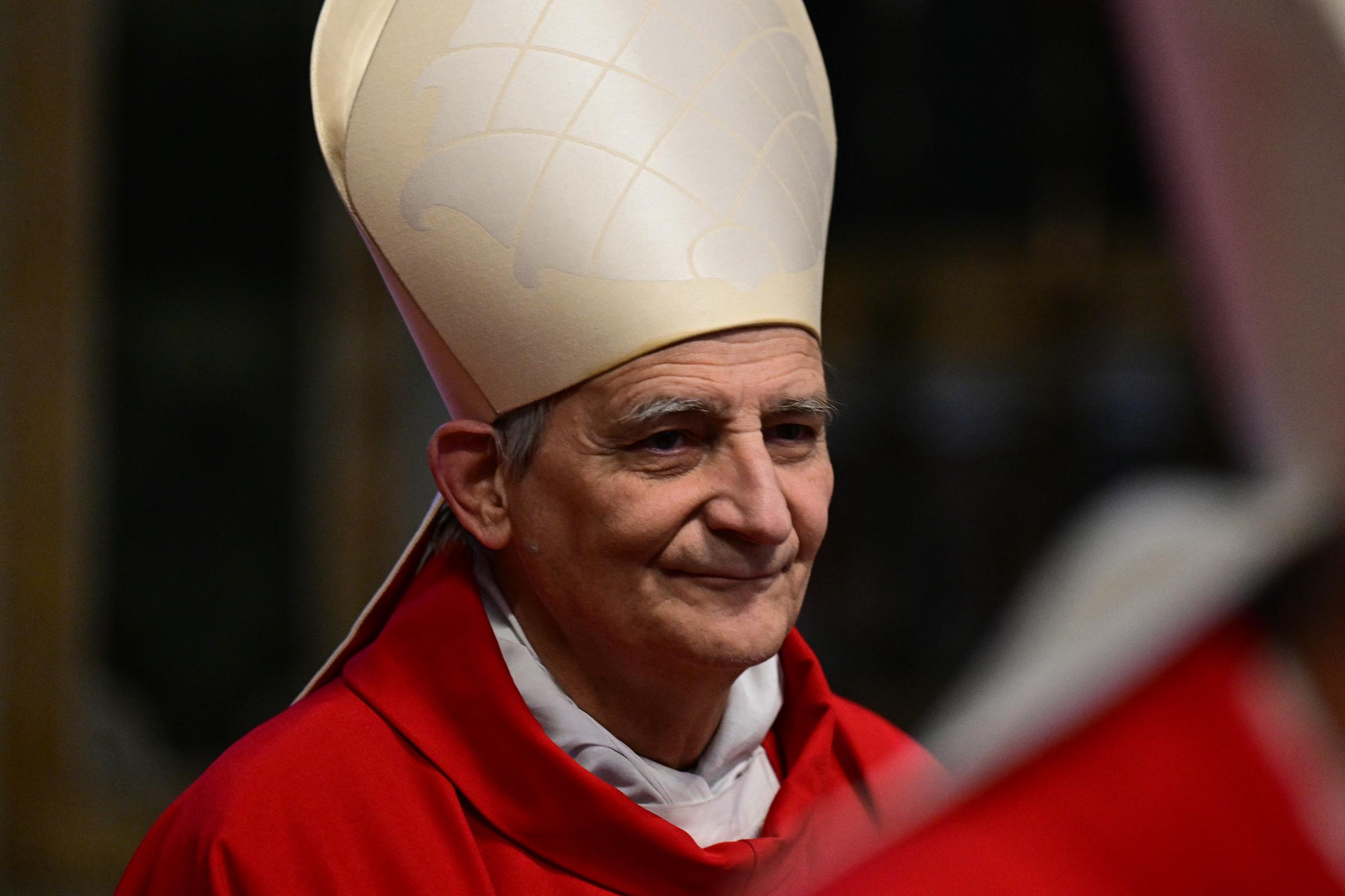
Cardinal Matteo Maria Zuppi at the Seventh Novemdiale mass in The Vatican, on May 2, 2025 | Source: Getty Images
José Tolentino Calaça de Mendonça (Portugal, 59)
Tolentino is one of the youngest candidates mentioned, which could be a disadvantage in a field where longevity matters. He is closely aligned with the late Francis and holds modern views that have stirred debate, including openness to same-sex relationships and ties to a pro-choice Benedictine feminist.
Despite his youth, he is recognized for urging the Church to engage constructively with modern culture, aligning with Francis’s inclusive vision.
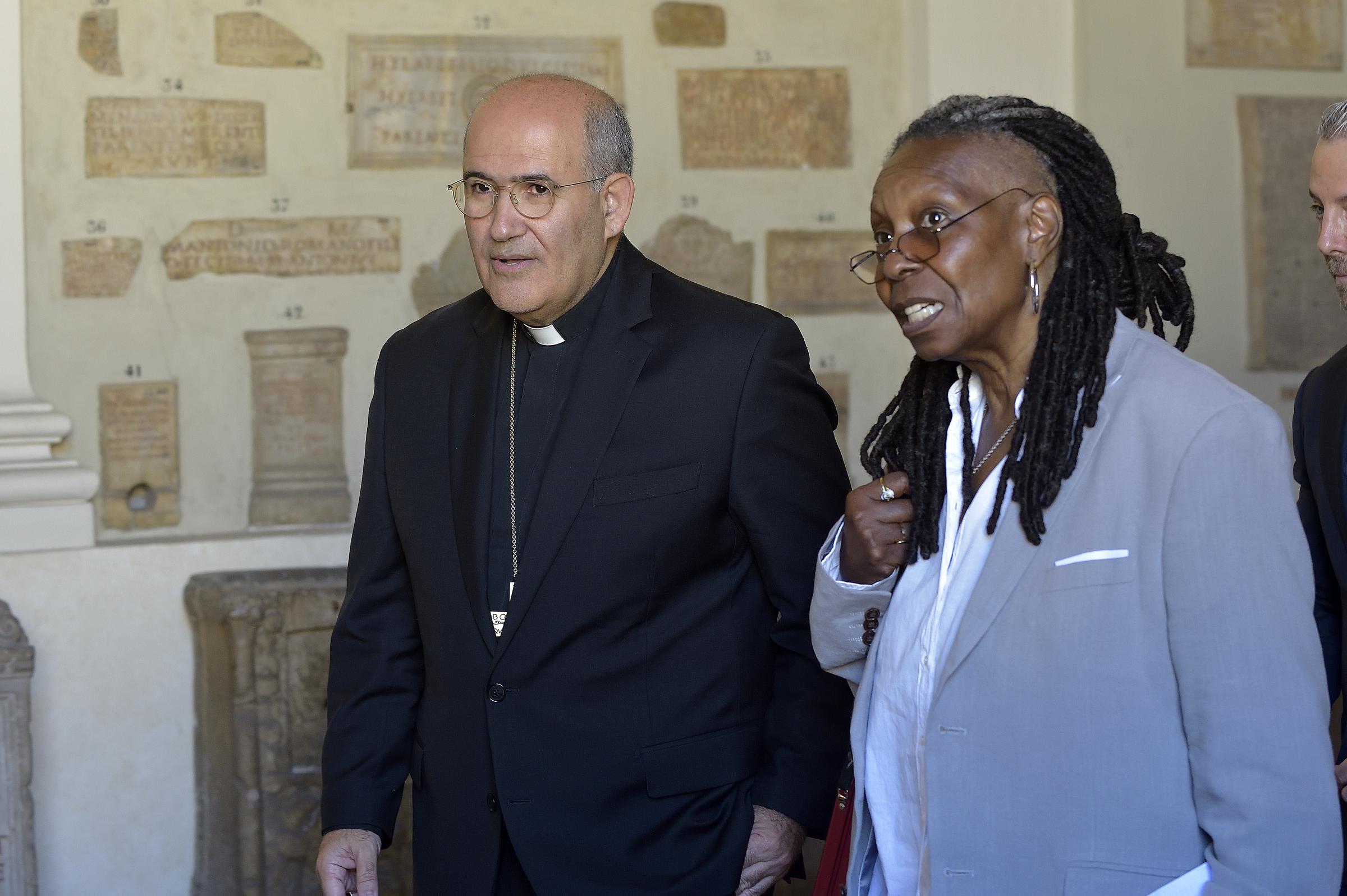
Cardinal José Tolentino Calaça de Mendonça and Whoopi Goldberg in the Galleria Lapidaria of the Vatican Apostolic Palace at the Apostolic Palace on June 14, 2024, in Vatican City | Source: Getty Images
Mario Grech (Malta, 68)
Initially known for traditional views, Grech evolved after Francis’s election, adopting more progressive positions. He has spoken in favor of ordaining female deacons and has taken moral stances against European political decisions limiting humanitarian aid to migrants.
His capacity to grow ideologically has drawn praise, suggesting adaptability and a broadening of vision under Francis’s influence.
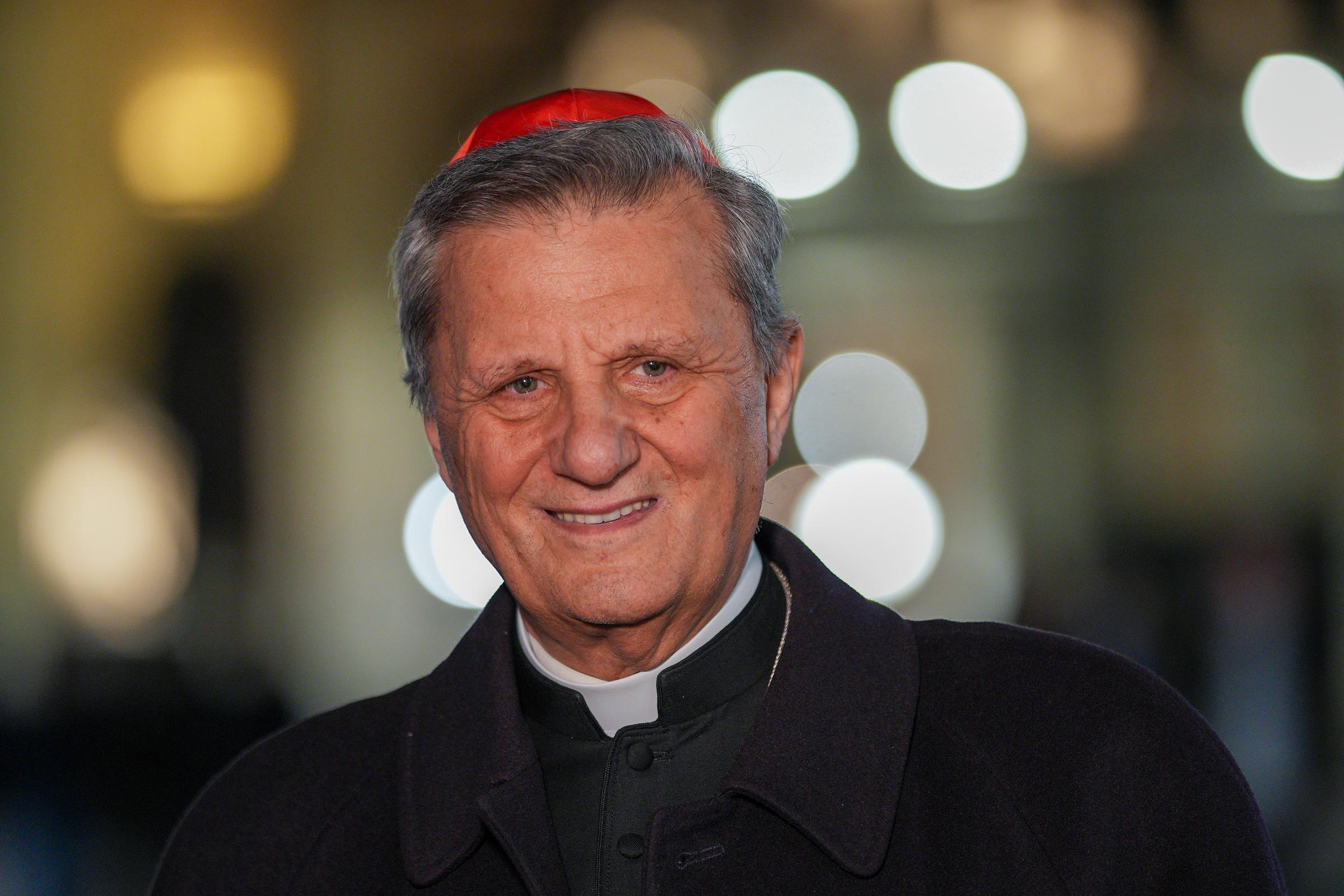
Cardinal Mario Grech at a media interview in St Peter’s square on March 15, 2025, in Vatican City, Vatican | Source: Getty Images
Pierbattista Pizzaballa (Italy, 60)
Serving as the Latin patriarch of Jerusalem since 2020, Pizzaballa has been a pivotal advocate for Christians in the Holy Land. His humanitarian gesture—offering himself in exchange for children held hostage by Hamas in 2023—highlighted his moral courage.
He later visited Gaza after lengthy negotiations. Though he’s not known for provocative theological stances, his pastoral leadership in conflict zones enhances his stature.
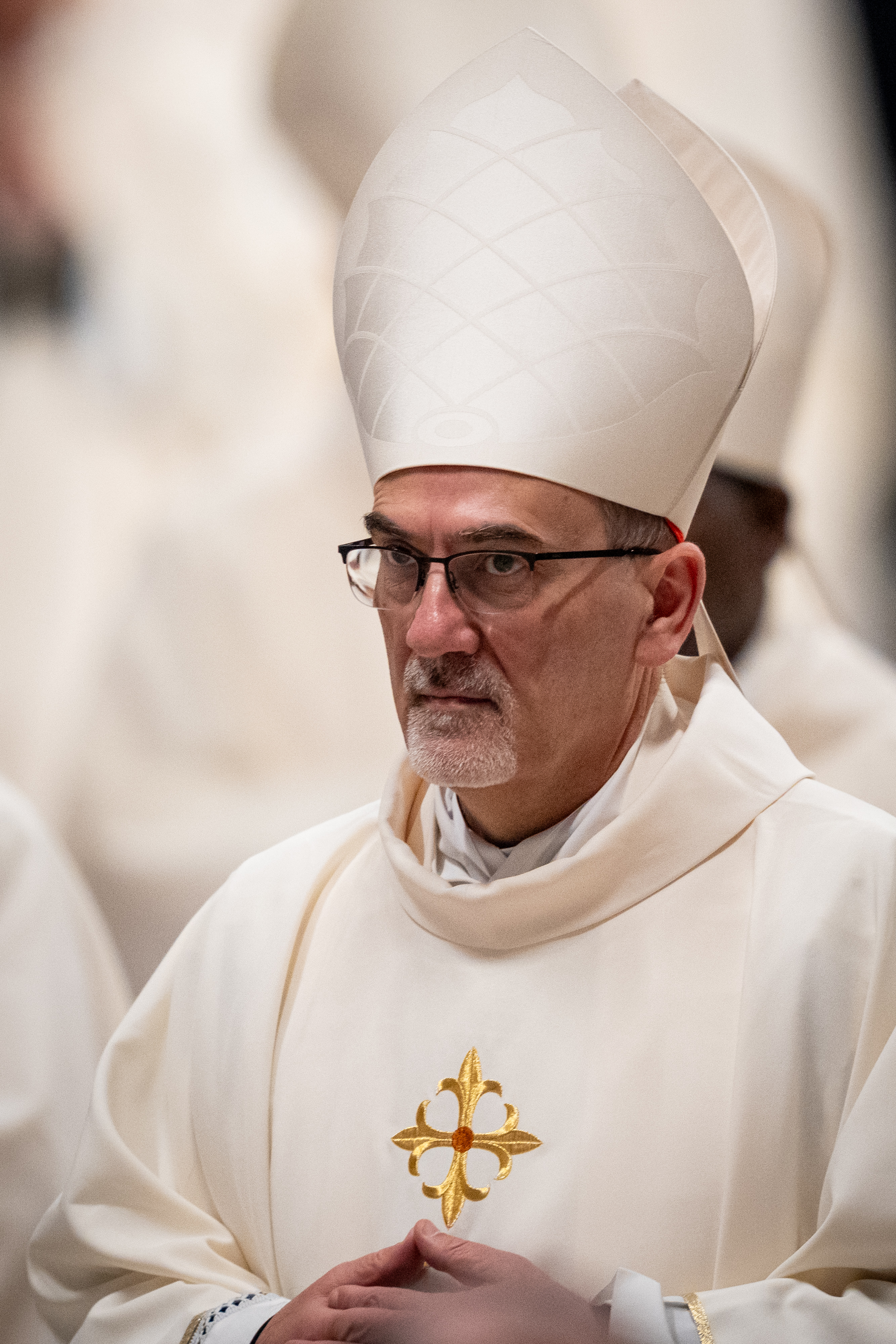
Cardinal Pierbattista Pizzaballa at the Ninth Mass of Novendiale in Suffrage for Pope Francis at St. Peter’s Basilica on May 4, 2025 | Source: Getty Images
Robert Sarah (Guinea, 79)
Sarah, a deeply conservative figure, has been a prominent critic of modern cultural shifts, warning against “gender ideology” and Islamic extremism. His co-authored 2020 book defending priestly celibacy was widely seen as a direct challenge to Francis.
He previously sought to shape Vatican influence as an alternative moral authority. Despite his age, his unwavering orthodoxy and intellectual gravitas make him a defining voice among tradition.
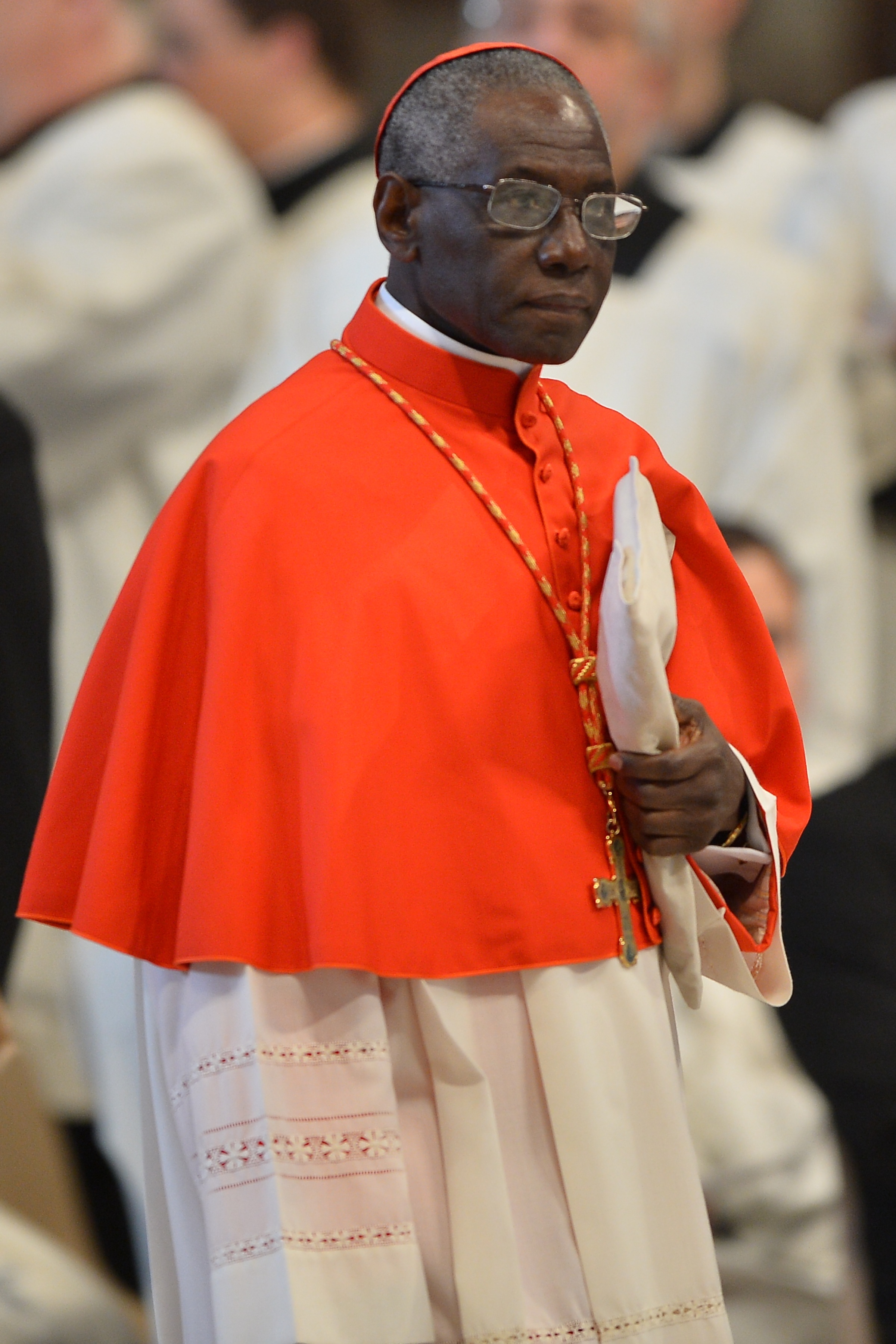
Cardinal Robert Sarah at a mass at the St Peter’s basilica on March 12, 2013, at the Vatican | Source: Getty Images
According to reports, by May 7, 2025, both Polymarket and Kalshi have placed Parolin in the lead. Bettors on Polymarket, an offshore cryptocurrency-based betting site, have wagered more than $21 million, while those on Kalshi, a prediction market platform legally authorized to accept bets in the US, have bet $8 million.
Parolin is generally considered more moderate than the liberal-leaning Francis, and papal experts noted him as a likely candidate. He had a 31% chance of winning the papacy on Polymarket and 32% on Kalshi.
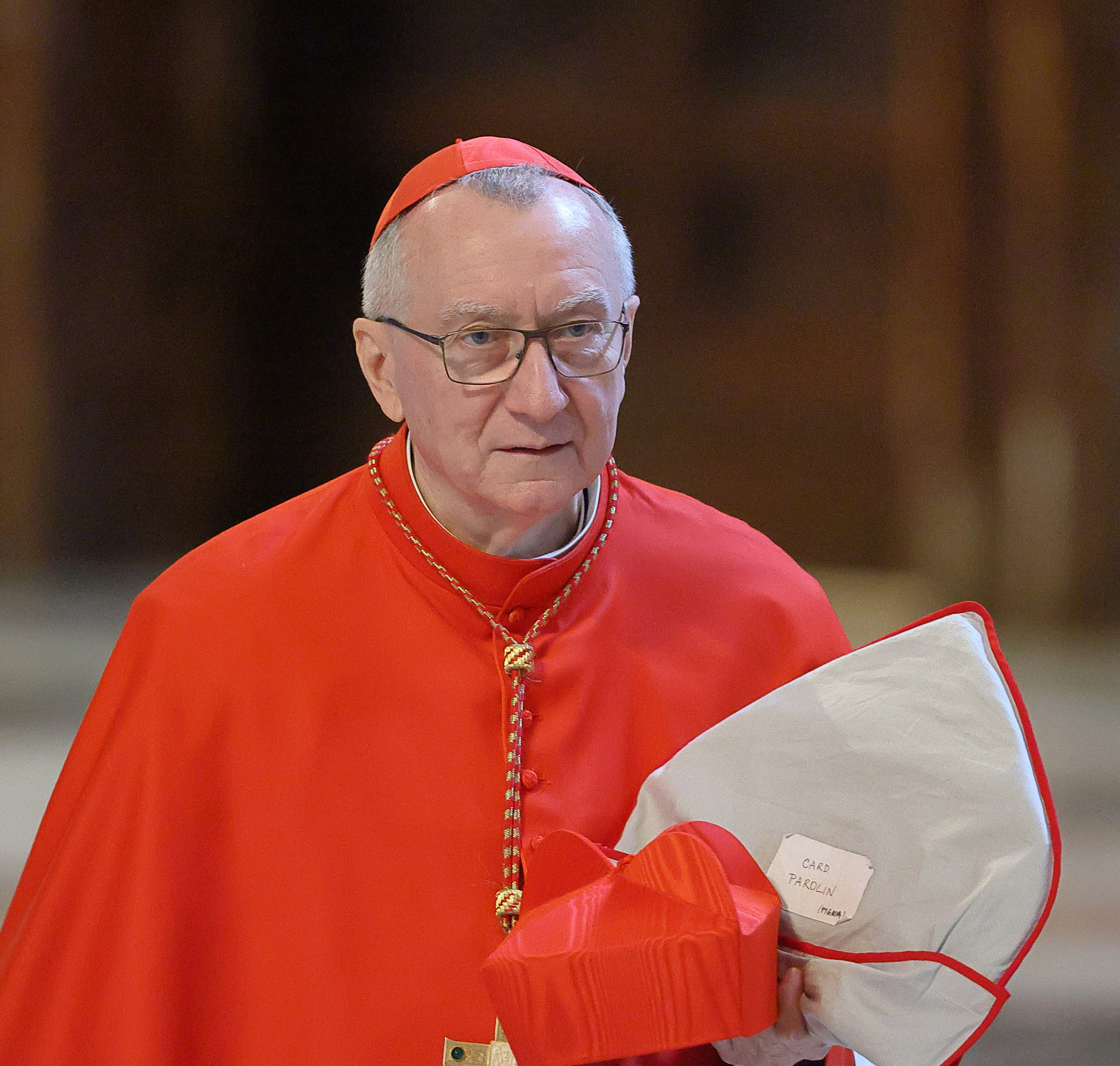
Cardinal Pietro Parolin during the Holy Mass for the election of the Roman Pontiff | Source: Getty Images
However, Tagle, who has drawn comparisons with the late pope, ranked second with 20% odds on Polymarket and a 21% chance on Kalshi. Zuppi and Pizzaballa rank third with eight percent and fourth with nine percent on Polymarket, while their positions are swapped on Kalshi.
Turkson ranks fifth on Polymarket with seven percent odds, while Erdő ranks fifth on Kalshi with a seven percent chance. Here’s what we know about the two leading candidates deemed as the late Pope Francis’ possible successors.
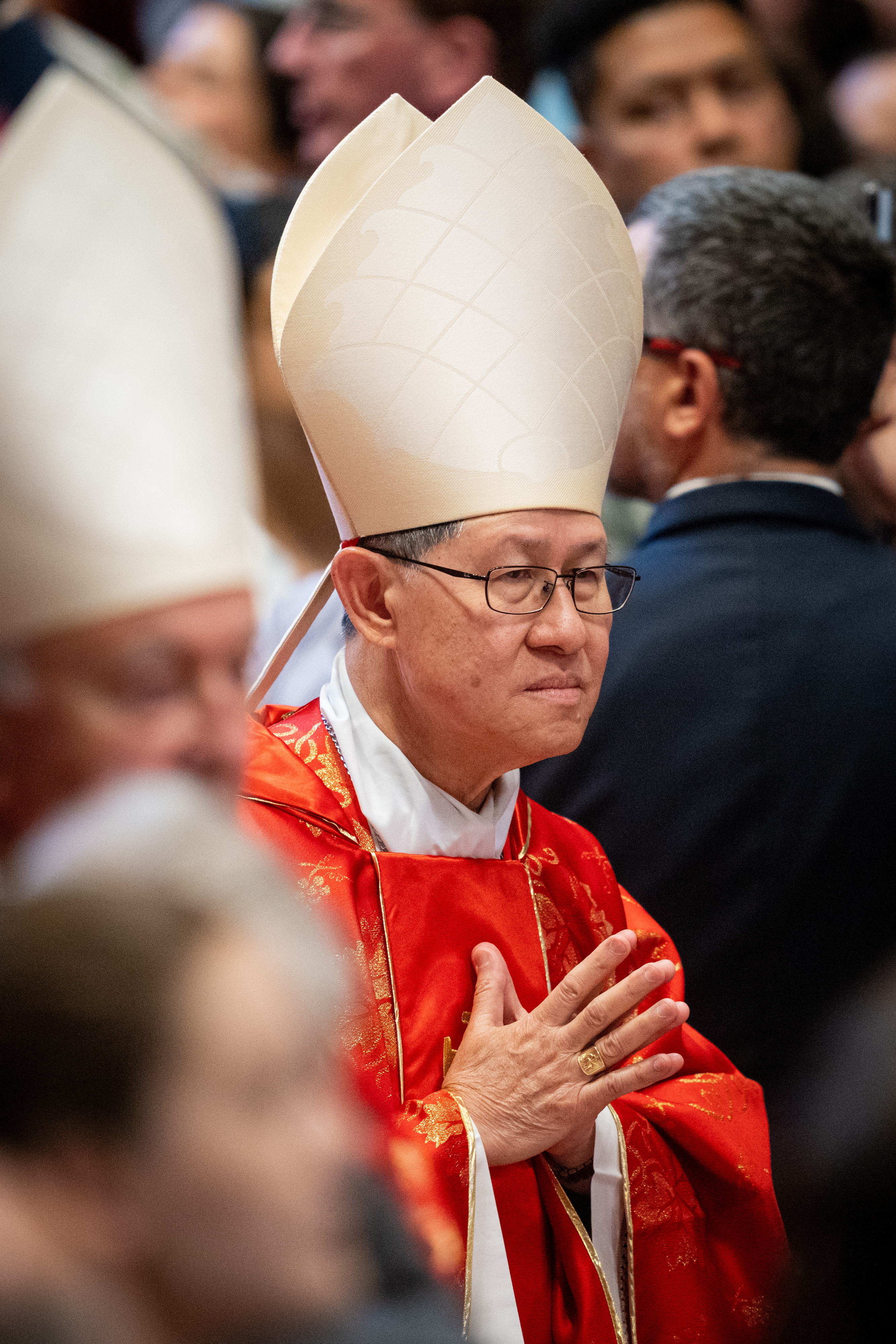
Cardinal Luis Antonio Gokim Tagle at the “Pro Eligendo Romano Pontfice” final Mass with cardinals before the conclave in St. Peter’s Basilica on May 7, 2025 | Source: Getty Images
Cardinal Pietro Parolin
Parolin was born January 17, 1955, in Schiavon, northern Italy. After entering the seminary at 14 and being ordained at 25, he pursued canon law and entered Vatican diplomatic service, with postings in Nigeria and Mexico. He later managed Church relations with multiple countries, including China, from Rome.
The cardinal has also been involved in other controversies, including the Vatican’s financial scandal, the Order of Malta crisis, and Spain’s Franco memorial negotiations—though never indicted, his leadership has been questioned.
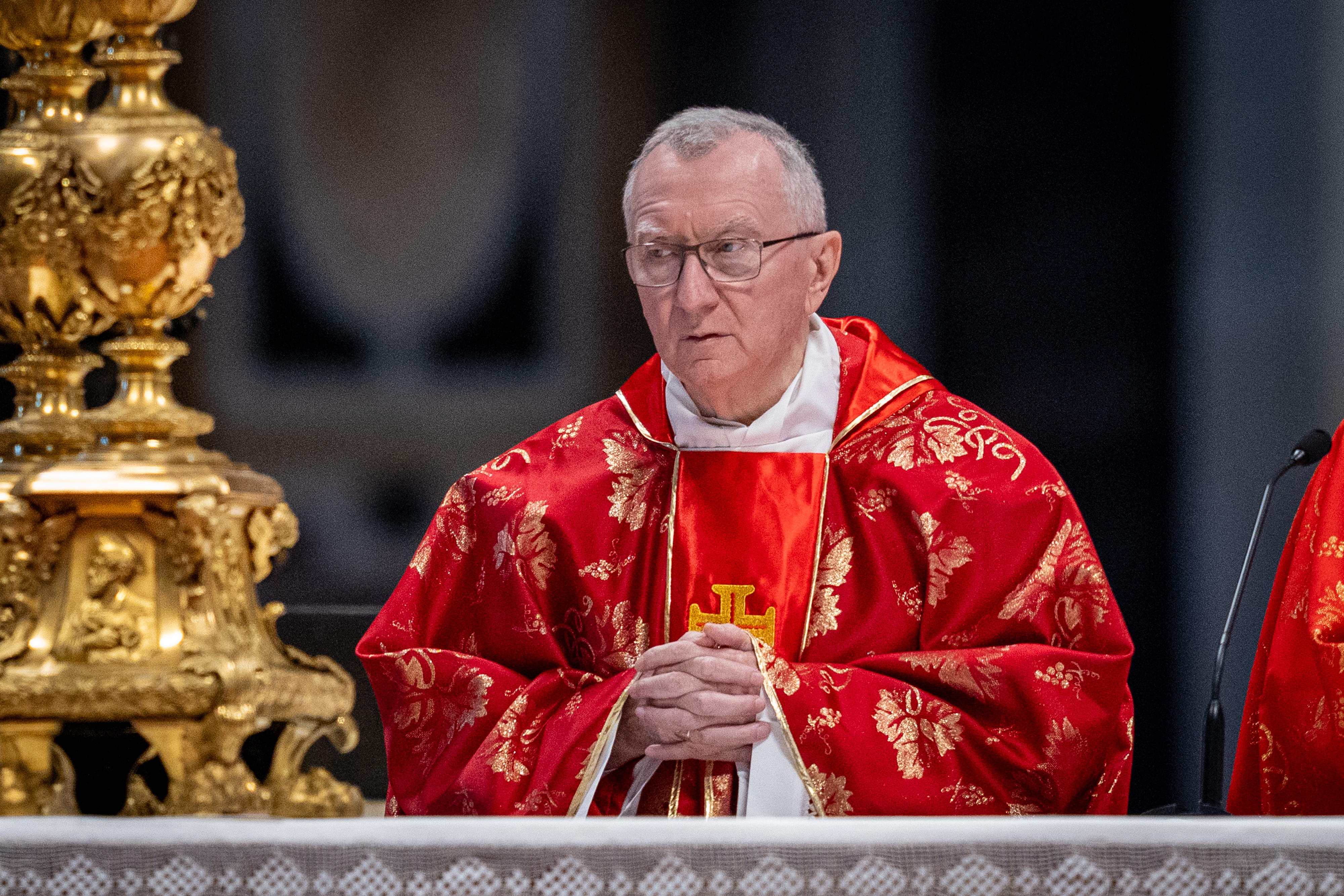
Cardinal Pietro Parolin at the “Pro Eligendo Romano Pontfice” final Mass on May 7, 2025 | Source: Getty Images
Fluent in several languages and close to Pope Francis, Parolin is seen as a pragmatic and discreet figure who might continue the late leader’s reforms with more subtlety. Despite lacking parish-level pastoral experience, he is respected for his global outlook, diplomatic skill, and long tenure in Church governance.
He is one of the most familiar figures to the 133 cardinal electors due to his extensive travel and longstanding role in Vatican diplomacy. Known for his mild-mannered, pragmatic style, he is widely viewed as a steady hand.
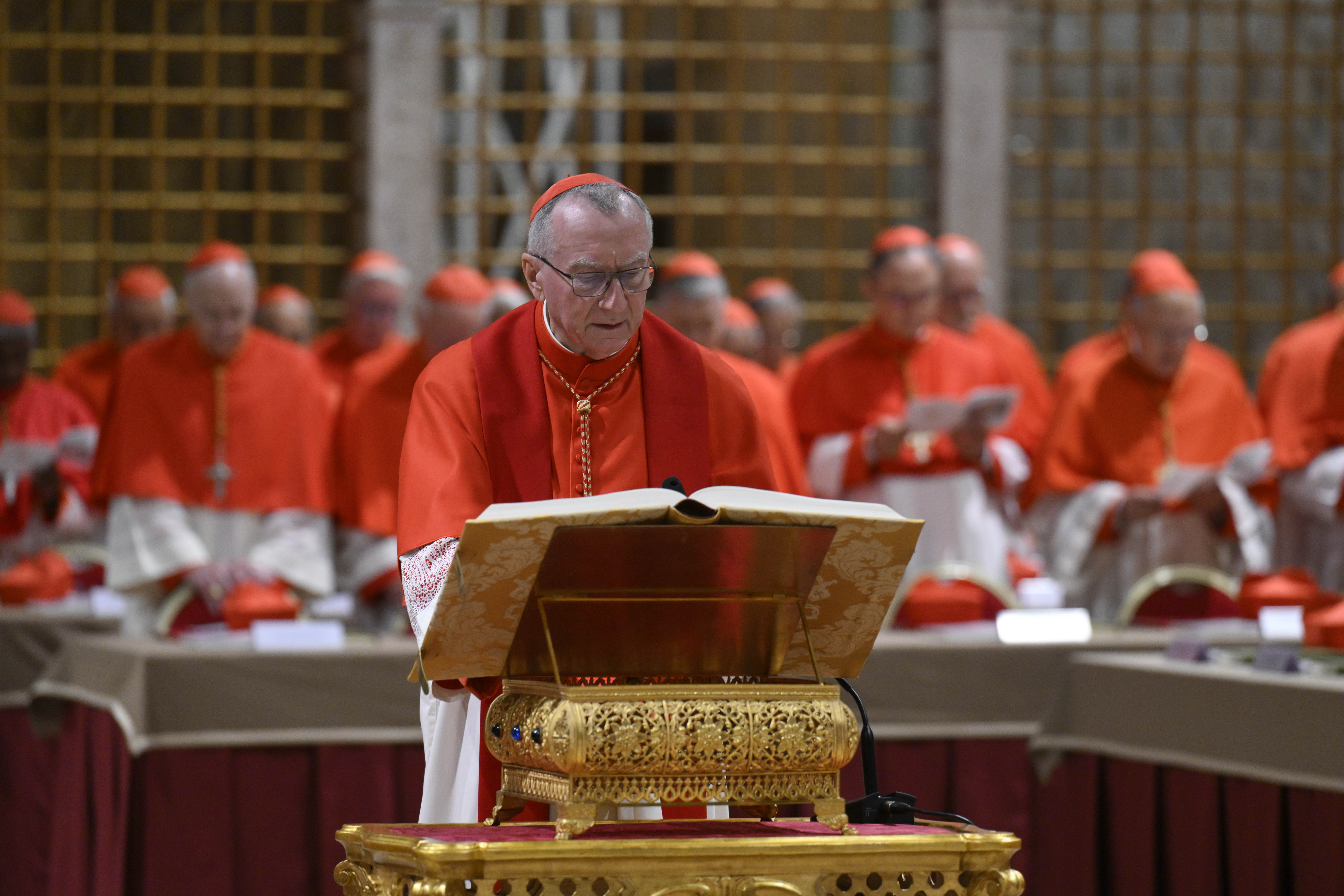
Vatican State Secretary Pietro Parolin speaks during the opening of the Conclave in the sistine Chapel | Source: Getty Images
He’s neither overtly conservative nor progressive, and has managed delicate political situations and often stepped in to smooth over controversies caused by Pope Francis’s public remarks.
Parolin’s diplomatic track record includes managing sensitive relations with global leaders and navigating controversial moments, such as clarifying the pope’s remarks on Gaza and Ukraine to foreign officials.
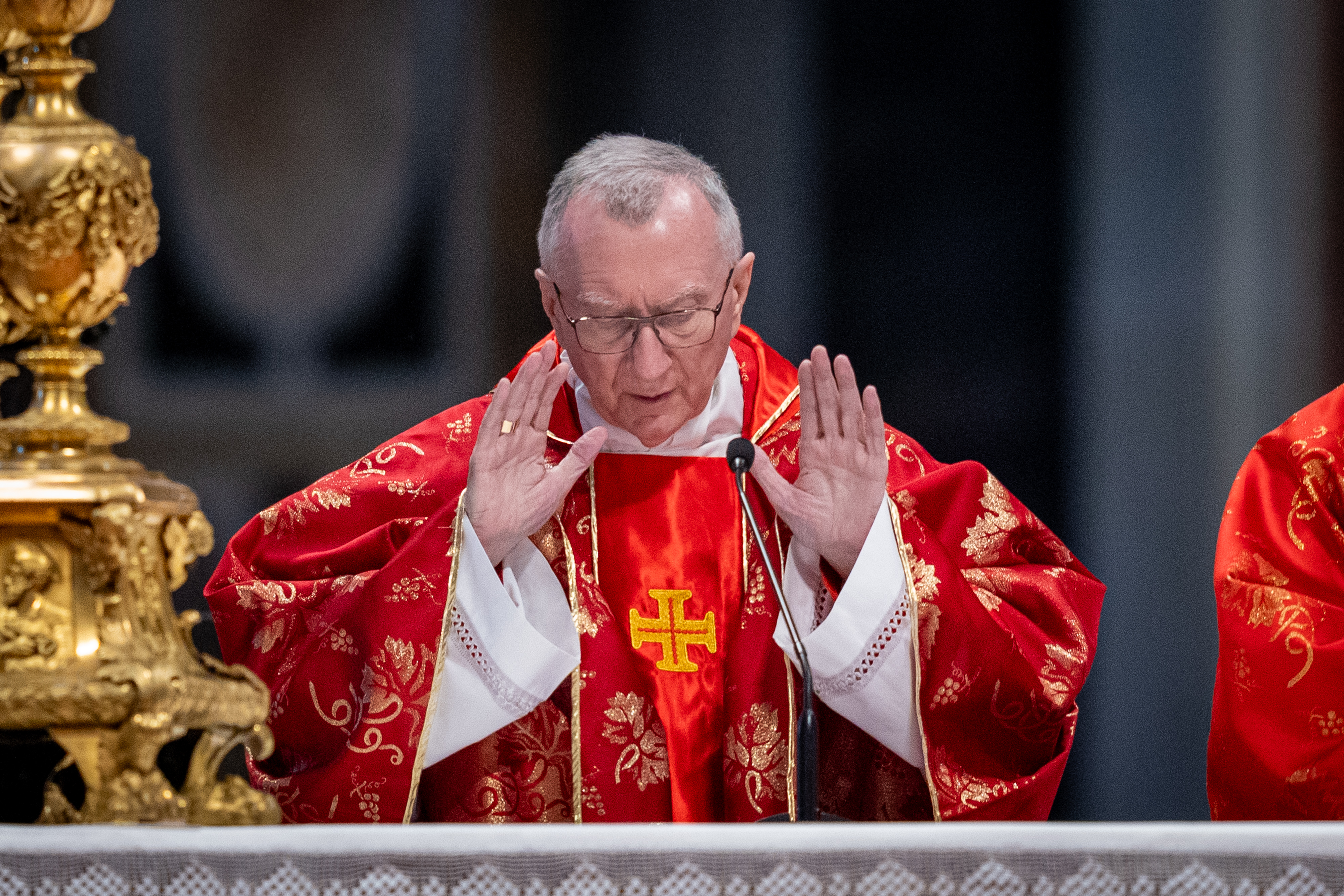
Cardinal Pietro Parolin at the final Mass with cardinals before the conclave to elect a new pope | Source: Getty Images
Despite never having led a diocese, his defenders argue his global diplomatic engagements have given him deep exposure to the Church’s universal needs. However, his critics, particularly from conservative circles in the US and Asia, oppose his role in the 2018 secret agreement with China, which grants Beijing influence in appointing Catholic bishops.
He has also faced scrutiny over his department’s financial oversight, notably involving a failed $140 million London real estate deal that led to a Vatican corruption trial. Though Parolin testified, he was not accused of wrongdoing.
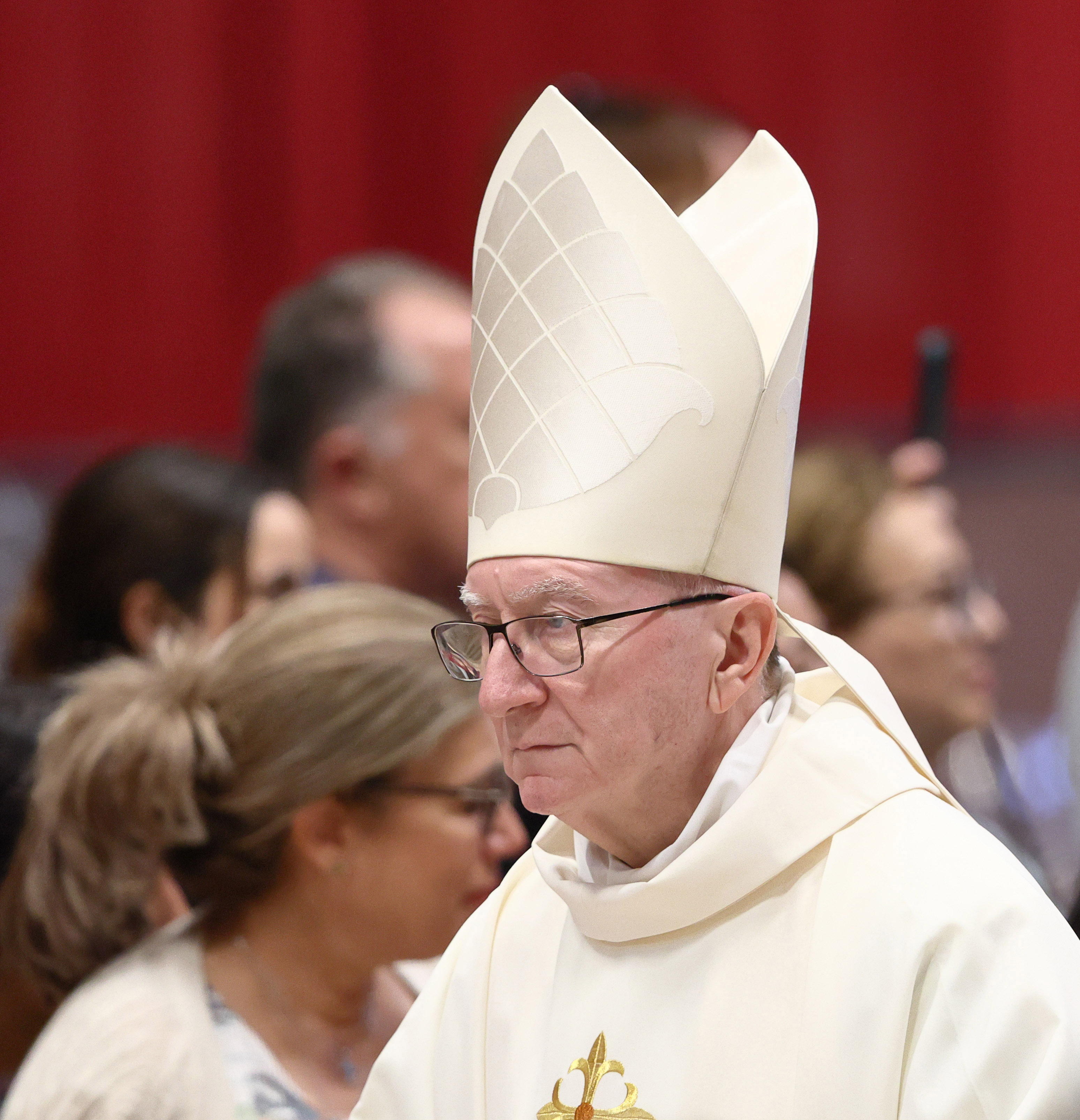
Cardinal Pietro Parolin during the Holy Mass on the ninth day of the Novendiali in Vatican City on May 4, 2025 | Source: Getty Images
Seen by some as lacking Francis’s charisma, Parolin is nonetheless respected for his competence and calm demeanor, with one insider likening him to “Clark Kent without the Superman part”—industrious, steady, and unflashy.
The cardinal visited Francis when he was in the hospital and also helped seal the papal apartments after he died. He also helped welcome cardinals he knew from around the world to the pope’s funeral.
Parolin was seen talking to former President Joseph R. Biden Jr., President Zelensky, and former Prime Minister Matteo Renzi of Italy. Leading up to the conclave, he celebrated an outdoor Mass for tens of thousands of faithful on the steps of St. Peter’s Basilica.
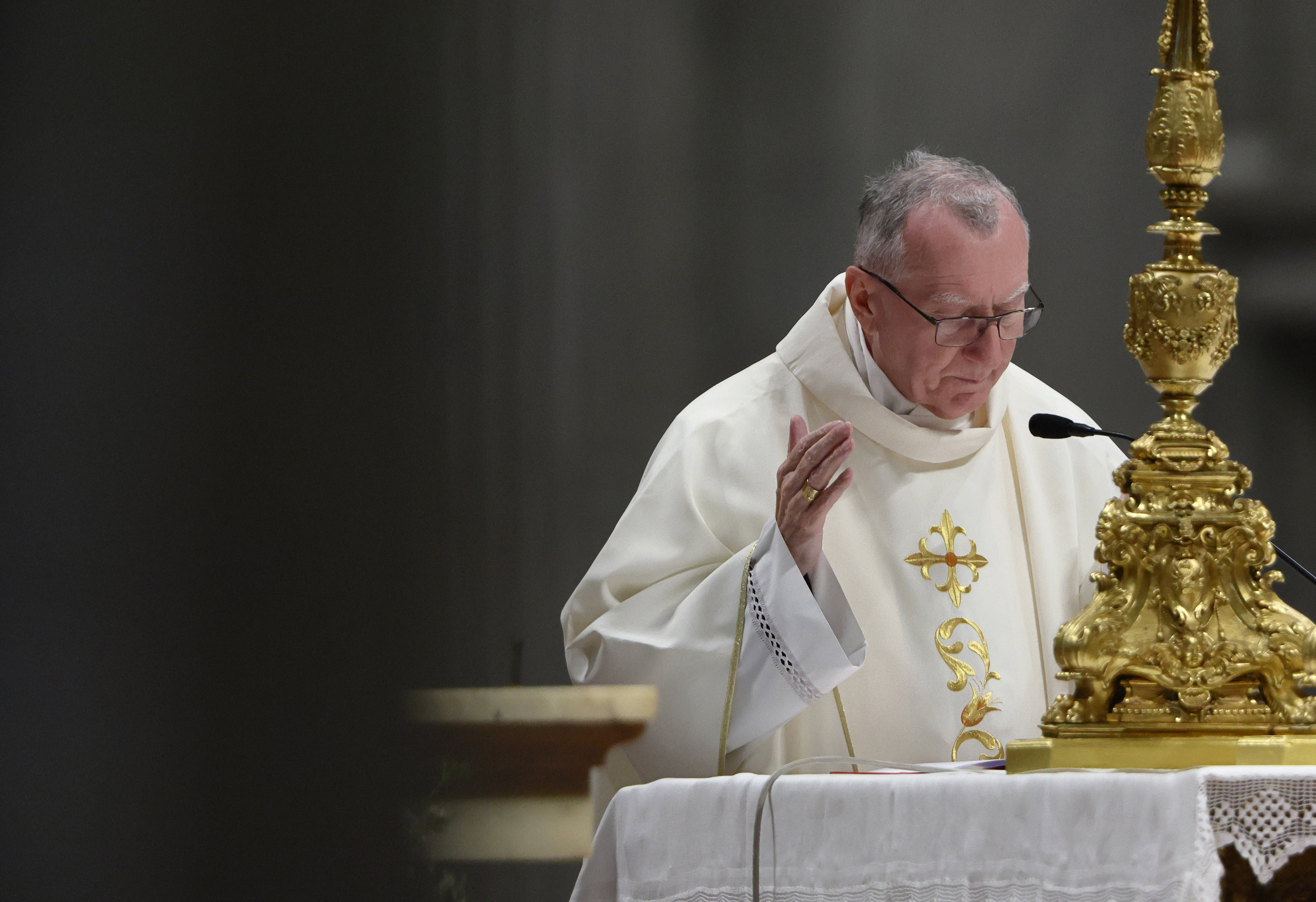
Cardinal Pietro Parolin during the Holy Mass in memory of the late Pope Francis | Source: Getty Images
Luis Antonio Gokim Tagle
Born on June 21, 1957, Tagle, known affectionately as “Chito,” hails from a well-off Filipino-Chinese background. He was originally on a path to become a physician before entering the seminary, influenced by Jesuit mentors.
Ordained in 1982, he earned advanced theological degrees in the US. He became known for his association with the Bologna School, which views the Second Vatican Council as a decisive break from earlier Church traditions.
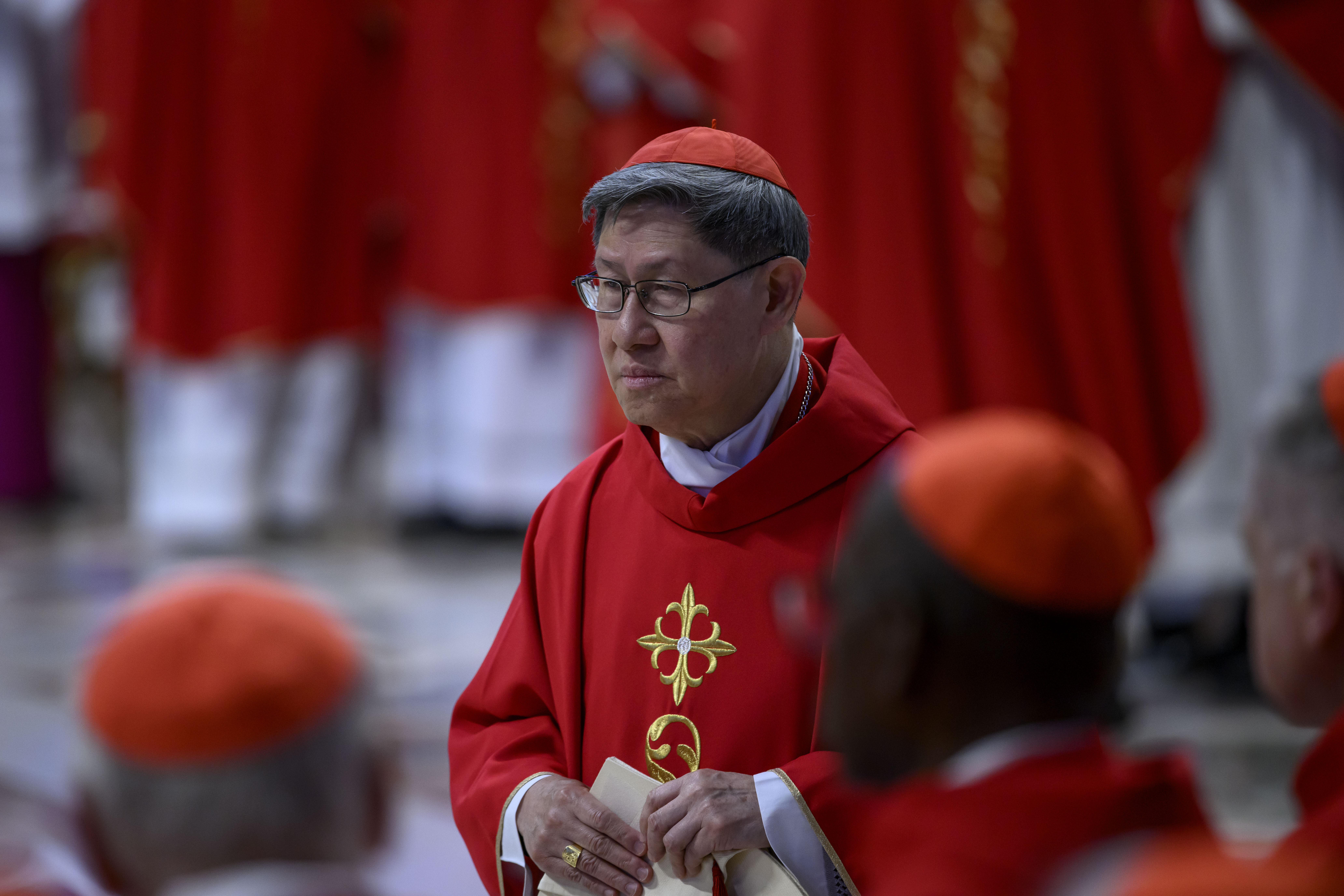
Cardinal Luis Antonio Gokim Tagle at the fifth Novemdiales mass held for the late Pope Francis on April 30, 2025, in Rome, Italy | Source: Getty Images
His ecclesiastical rise included serving as bishop of Imus and later archbishop of Manila. Elevated to cardinal by Benedict XVI in 2012, Tagle held leadership roles in major synods and global organizations like Caritas Internationalis. However, Pope Francis removed him from the latter’s leadership in 2022.
Since 2019, he has served in Rome. He first served as prefect of the Congregation for the Evangelization of Peoples and then as pro-prefect of the Dicastery for Evangelization. Tagle is often seen as the “Asian Francis,” reflecting pastoral warmth, emotional openness, and progressive leanings.
While he strongly opposes abortion and euthanasia, his views on Communion, homosexuality, and interreligious dialogue are more nuanced and have drawn both praise and criticism. His involvement in rituals like the 2019 Pachamama event and vague theological statements has raised questions among traditionalists.
In 2025, a controversial report alleged Tagle’s indirect involvement in gambling via proxies in Macao, casting a shadow over his candidacy. Still, his global stature, experience, and alignment with Pope Francis’s vision keep him in consideration, though his youth and perceived ambiguity on moral clarity may reduce his chances.
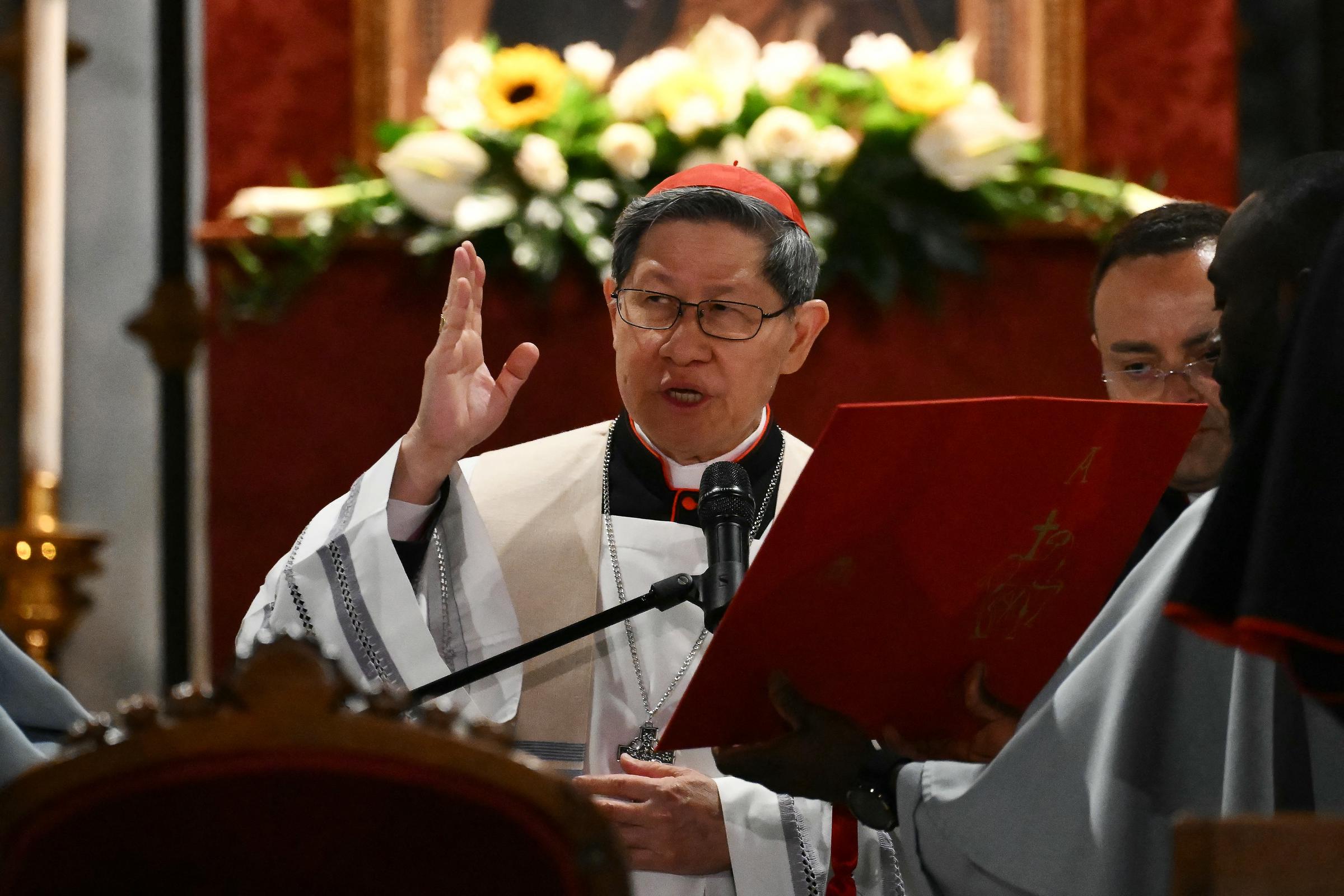
Cardinal Luis Antonio Gokim Tagle at a rosary prayer at Santa Maria Maggiore Basilica in Rome on April 24, 2025 | Source: Getty Images
Fluent in multiple languages, Tagle remains a notable figure with both devoted followers and skeptical critics. He is admired for his down-to-earth style—riding public transport, dining with the poor, and enthusiastically singing and dancing, earning him the nickname “karaoke priest.”
However, it was reported that Tagle altered the lyrics to avoid including anything against religion. Seeing the clip, one person said, “Karaoke in the Vatican every Friday night… Pontifical High Mass hitting like crazy every time…May God grant us a pope who has the karaoke singing genes embedded in him…. [sic]”
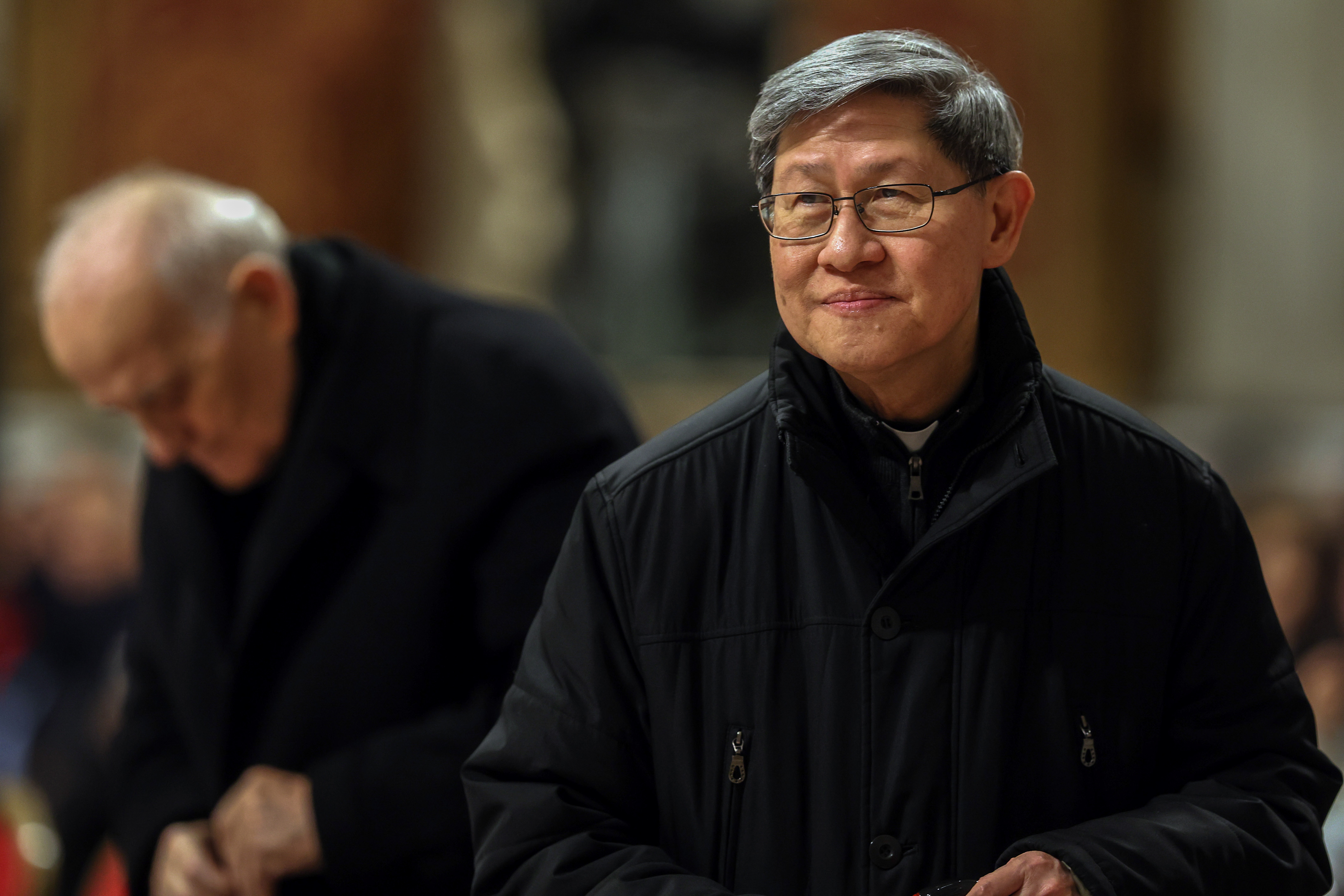
Cardinal Luis Antonio Gokim Tagle at the recitation of the Holy Rosary for Pope Francis on March 1, 2025 | Source: Getty Images
Another viewer chimed in, “Pinoy Papa, let’s gooooo [sic],” while another enthusiast wrote, “Karaoke every Friday night.” That same month, he appeared in another cheerful video, singing and gesturing animatedly with his hands, dressed in his cardinal attire.
Reacting to the clip, one fan declared, “HE IS THE ONE.” Another asked, “How can you not like him … [sic],” adding, “Tagle forever ❣️.” A different commenter shared, “I love this man. It’s what we need. 👍🏻❤️”
However, not all responses were positive. That same month, the cardinal faced criticism for dancing with a statue of Jesus during an event. One detractor wrote, “Zero tolerance for this,” and continued, “Mass isn’t a talent show for your culture. Christ’s death isn’t your excuse for a dance party. Reverence isn’t ‘ignorance’; it’s the minimum God deserves. Keep coping. The sacred will survive your tantrum.”
Another commenter urged caution, stating, “If he is chosen as Pope, consider the damage that these seeds of distrust could cause in the hearts of many. We must be careful not to turn a potential anointed leader of the Church into an enemy through careless words. Please be mindful not to sow division where unity is needed most.”
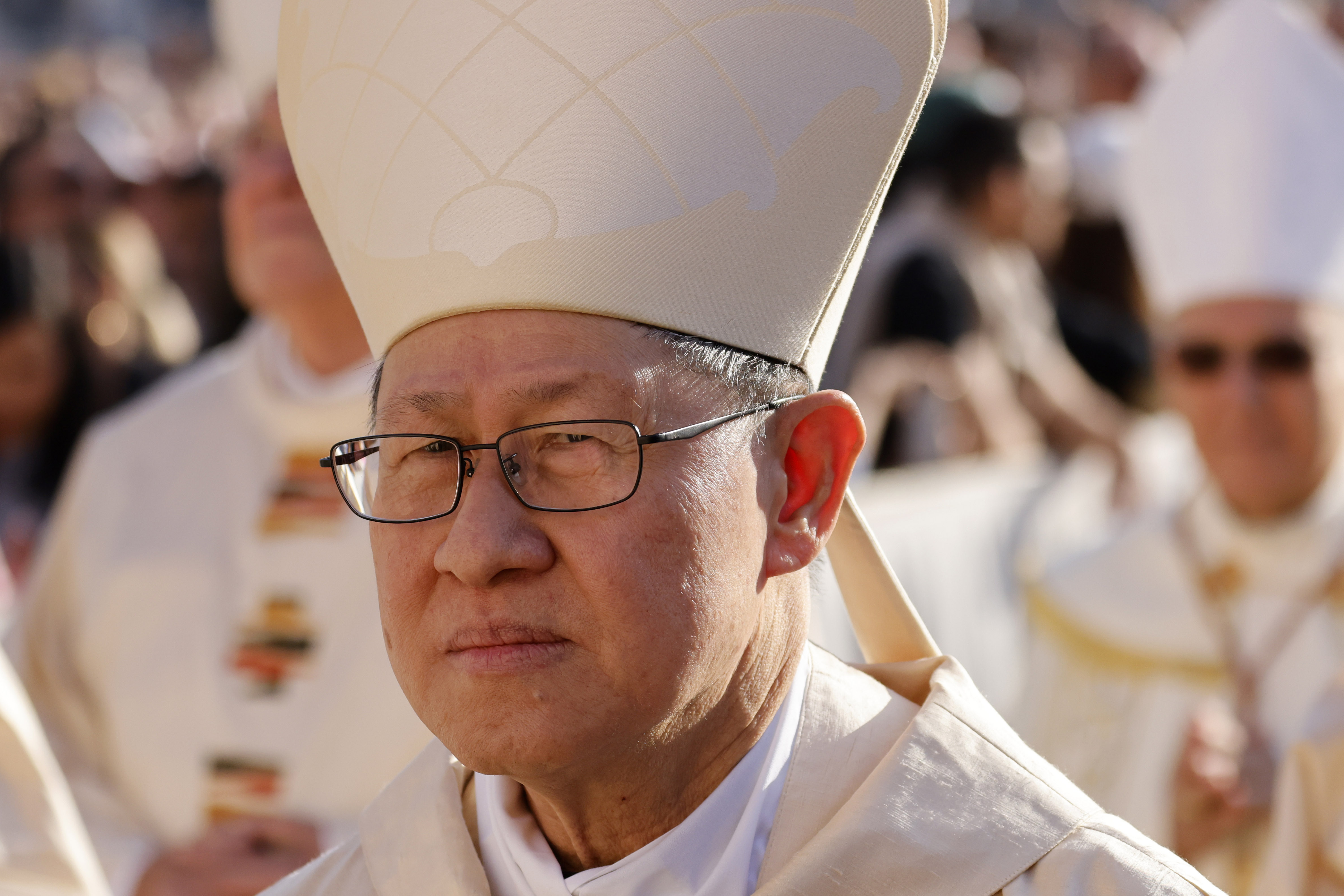
Cardinal Luis Antonio Gokim Tagle at a mass led by Pope Francis at the opening of the XVI General Assembly of the Synod of Bishops, at St. Peter’s Square in Vatican City, Vatican, on October 4, 2023 | Source: Getty Images
While another remarked, “Ok ok ok Dear Lord Jesus Christ please Tagle No!! Papachito NO!! [sic]”
He opposes abortion and the Philippines’ reproductive health law but avoids confrontational rhetoric. If elected pope, he would be the first Asian in the role and a source of immense pride for the Philippines, a devout Catholic nation that has long felt peripheral to Vatican power.
As the conclave continues, anticipation grows around the frontrunners. Whoever is chosen will shape the Church’s direction for years to come.
